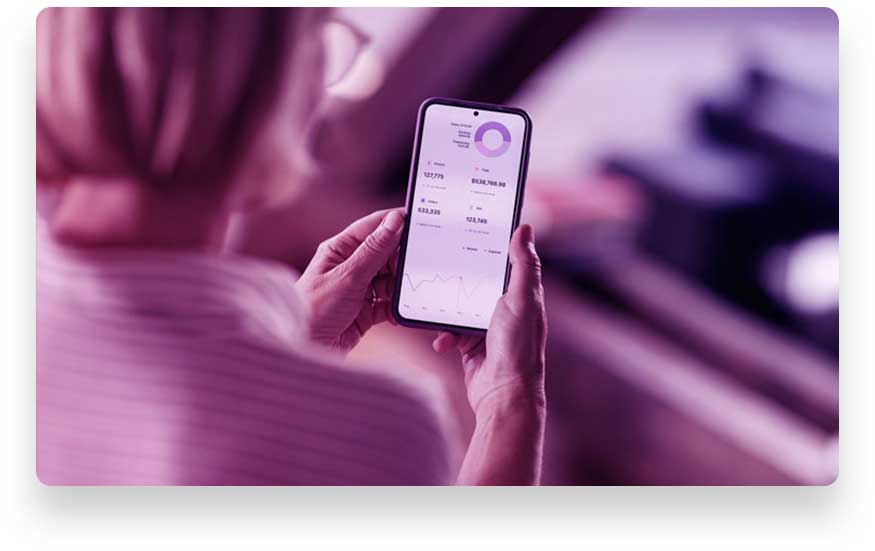



When the cash flow forecasting tool Andy Mellor relied on shut down, Float immediately stood out as the ideal alternative.
A CIMA-qualified accountant who worked as a board-level director and CFO for 15 years before founding fractional CFO consultancy Summit 17 in 2022, Andy needed a high level of granularity, without the manual headache of spreadsheets. Float's powerful automations and depth of specialisation impressed him so much he skipped the demo and incorporated it into a client project straight away.
Float is now instrumental in ensuring his clients are properly prepared to capitalise on new opportunities and reach their strategic goals. In turn, it has also enhanced his reputation as a practical, effective, results-driven advisor.
Here’s a closer look at Float’s critical role in three of Andy’s client success stories.

Andy's managed services client was going through a complex restructuring exercise which included buying out a 40% shareholder — a transaction worth around £2 million.
Float's pinpoint accurate predictions made it possible for the company to:
'Float helped make a compelling, persuasive case,' explains Andy. 'I could go and say "Look, if this happens and this happens and this happens, you can build a cash balance that enables you to do the deal".'
But, what Andy was most impressed with was the level of accuracy.
'I think the projections were around £200,000 out on an almost £2 million transaction,' he says. 'So 10%, which is well within the margin of error you'd expect, especially when you consider we were working with a 12 to 18 month time-horizon.'

The nature of the construction business — long and complex timelines, irregular incomings, and large, unpredictable outgoings, particularly when there are unforeseen expenses — makes tracking cash flow especially complex.
And, when that company is handling multiple projects simultaneously, which means different payment and payout schedules, costs, and risks, the complexity rises to a whole other level.
While on assignment for a construction client, Andy found Float extremely effective at cutting through the noise and delivering real-time, accurate forecasts. He singles out its project-based forecasting capabilities as having been the most helpful.
'We leaned on Projects A LOT for mapping future cash flows, which is particularly hard in construction,' Andy says.
'It gathered all the data in one place, which made it easier for us to have visibility across all the different projects the company was involved in. And the scenario planning feature allowed us to model different outcomes based on typical issues we might encounter — like payment delays or cost overruns.'

Float's data consolidation capabilities have also proven valuable on an assignment involving a pharmaceutical client that's navigating a multi-million pound CapEx project.
'The company's day-to-day business is profitable, but the project, as you'd expect, is burning cash,' Andy explains. 'Float's consolidation feature combines both sides and helps us see the full financial picture.'
Alongside giving a holistic view of the business' financial position, Float is also making it easier to track the project's expenditure and budgets, and to identify and prepare for potential financial gaps.
'We can keep track of how much we're spending and where it's going,' Andy says, 'and compare that to what we budgeted.
'We also use Float to see what project-related expenses are coming up and what's left in the budget, so we can co-ordinate with the bank we're borrowing from to fund the project.'
'There isn't anything better than Float out there.'
Float's contribution to these success stories is no accident, according to Andy.
'Of course, Float's usefulness is directly proportional to the quality of your data,' he says.
'But maintaining data quality is easy compared to using spreadsheets and other manual methods. Its integration capabilities mean that, if your bookkeeping data is accurate and up to date, Float will also be accurate and up to date.'
But while Andy doesn't hesitate to sing the praises of Float's automation capabilities, he thinks the stand-out feature is its depth of specialisation.
This is the reason he chose Float in the first place, and the reason he recommends it to other CFOs.
'Float aren't trying to be everything to everyone,' Andy says. 'They focus on doing one thing — cash flow forecasting — really, really well. As a result, you can get exactly what you need from it quite quickly. I'll spend maybe half an hour personalising it, and I've got something I can show the client almost straight away.

'Managing the data is also much less work. In Float, it takes me less than half an hour a week. Between downloading bank data, correcting for actuals, changing forecasts, and so on, I'd spend up to two hours a week in Excel.'
Float, Andy says, is well worth looking at even if you're not worried about cash flow.
'There are always things you can improve,' he concludes, 'bottlenecks, inefficiencies, stuff like that. Why not address them, if you have the option to do so with a negligible amount of extra effort?'




